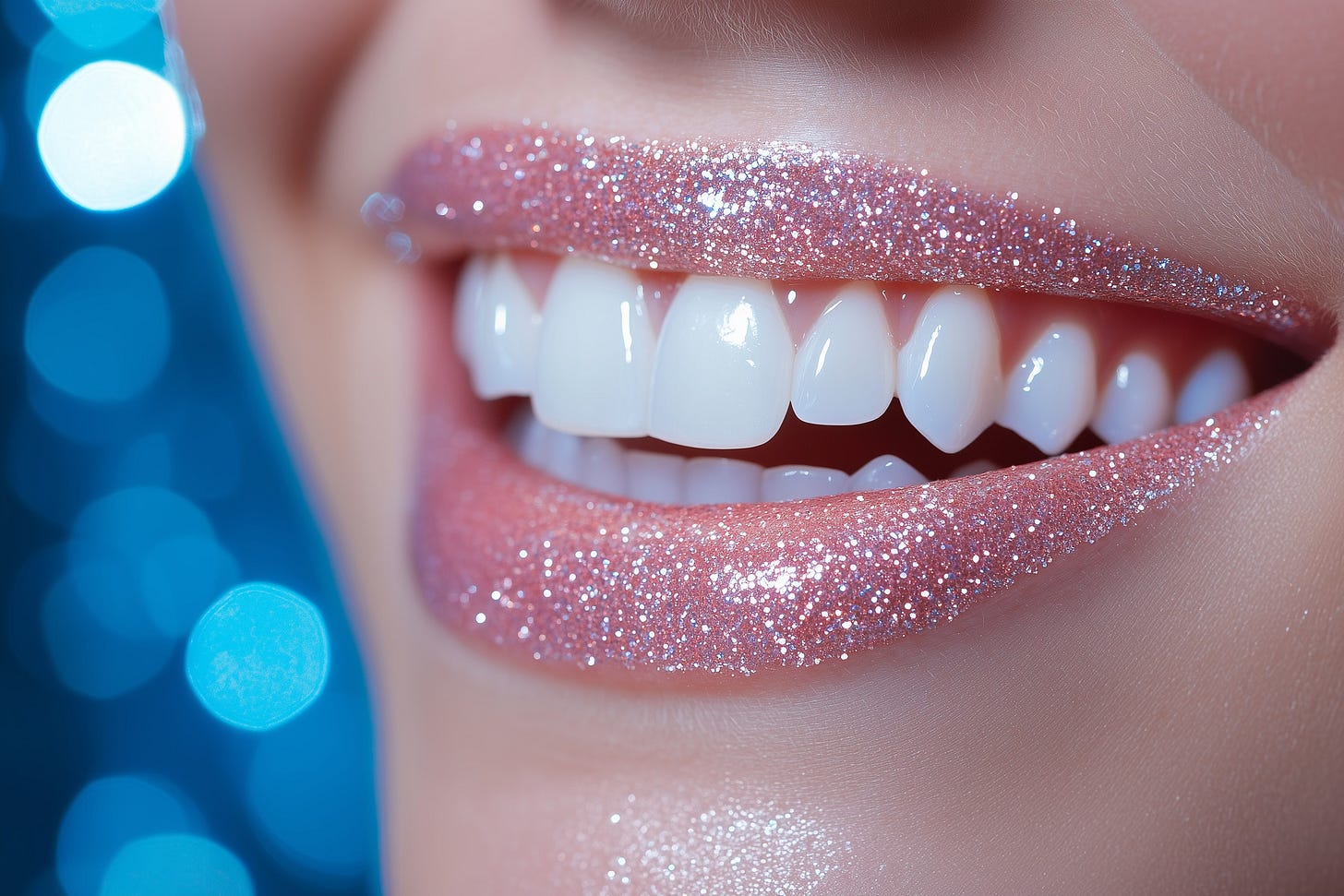The Benefits of Smiling: A Gateway to Happiness
When I first started my career designing textiles, one of my first big successes was a print featuring a yellow smiley face for Walmart. It was used on sleep pants, and seeing people embrace something I had created brought me so much joy. That little yellow face became more than just a design; it was a symbol of comfort and happiness. It reminded me of the power of something as simple as a smile.
Smiling, whether spontaneous or intentional, is a universal expression that transcends cultures and generations. Beyond its ability to brighten someone's day, a smile has profound effects on your own well-being. My mom often shares a fascinating “happiness hack”—the idea that intentionally smiling can trigger a cascade of feel-good chemicals in your brain, boosting your mood. Science backs this up, making a smile one of the simplest tools for happiness and health. Let’s explore the benefits of smiling, its historical and cultural significance, and why it’s worth doing more often.
Benefits of Smiling
Boosts Happiness Through Brain Chemistry
Smiling, even when you don’t feel like it, can trick your brain into happiness. This is thanks to the facial feedback hypothesis, which suggests that the act of smiling activates the release of dopamine, serotonin, and endorphins—the brain’s natural feel-good chemicals.Dopamine enhances pleasure and motivation.
Serotonin is associated with mood regulation and calmness.
Endorphins reduce stress and physical pain.
Essentially, your brain interprets the muscle activity of a smile as a signal of happiness, creating a feedback loop that amplifies positive emotions. So, the next time you’re feeling down, try this "hack" my mom loves to share—smile intentionally and let your brain do the rest.
Reduces Stress and Lowers Blood Pressure
Smiling not only lifts your mood but also relaxes your body. When you smile, your heart rate slows, your blood pressure stabilizes, and your body releases stress-reducing chemicals. Studies have shown that people who smile during stressful situations experience less of the negative physiological impact of stress.Strengthens Social Bonds and Attracts Others
Smiling is contagious—it encourages others to smile back, creating a sense of connection and warmth. It’s an unspoken language that transcends cultural and linguistic barriers. Smiles build trust and make others perceive you as more approachable, confident, and friendly.Improves Immune Function
Positive emotions like happiness and joy, which are linked to smiling, have been shown to enhance your immune system. When you smile, your body releases neuropeptides that help fight stress and illness, giving your immune system a boost.Makes You More Memorable and Likable
People who smile are often seen as more attractive, competent, and trustworthy. In fact, smiling can have a lasting impact on how others remember you. A genuine smile during an interaction leaves a positive impression that can benefit both personal and professional relationships.
Historical and Cultural Significance of Smiles
Smiling has held different meanings and levels of importance across cultures and time periods:
Historical Perspective: In medieval art, smiles were rarely depicted, as they were often associated with foolishness or lack of self-control. It wasn’t until the Renaissance that smiles began appearing in art as a symbol of joy and humanity (think Leonardo da Vinci’s Mona Lisa).
Cultural Differences:
In the United States, smiling is a cultural norm and a sign of friendliness, even in casual interactions. American tourists are often identified abroad by their frequent, cheerful smiles.
In Europe, especially in countries like France or Germany, smiling at strangers may be seen as overly familiar or insincere. This difference is why European men often notice that American women smile more casually and frequently.
In Japan, smiling can sometimes be used to mask discomfort or sadness, as maintaining harmony is a cultural priority.
Smiling is also universal in its role as a social connector. Research shows that even blind individuals smile when they feel joy, proving that it is an innate human expression rather than a learned behavior.
Scientific Evidence of Smiling’s Impact
Science has consistently supported the benefits of smiling:
A 2019 study in the journal Psychological Science found that participants who mimicked smiling facial expressions experienced a boost in mood, even when the smile was forced.
MRI studies have shown that smiling activates the brain's reward system, enhancing emotional well-being and making you feel happier.
Research in the Journal of Behavioral Medicine suggests that smiling during stressful activities reduces the body’s stress response, making challenges easier to navigate.
The Power of Smiling as a Happiness Hack
From the joy of designing that yellow smiley face to the science behind a simple grin, smiling has always been a source of inspiration and positivity for me. The next time you feel overwhelmed or blue, remember this: your smile is more than a reaction—it’s a tool. Whether it’s genuine or intentional, a simple smile can set off a cascade of positive changes in your brain and body, helping you feel better, connect with others, and even improve your health. My mom’s advice has proven to be both practical and rooted in science—a small smile truly can lead to big transformations.
So, why not smile more often? It costs nothing, but the rewards are immeasurable. 😊






